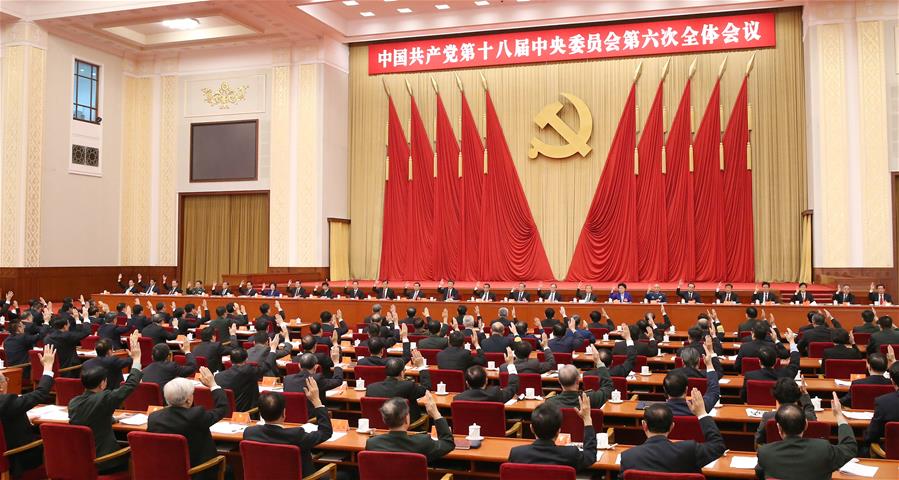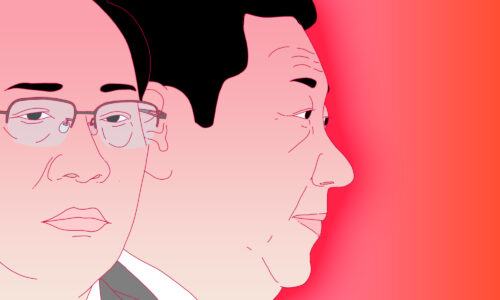The Communist Party’s ghosts

All the world is on the verge of flames today, but the top story on Xinhua News Agency’s Chinese website is “The Central Committee of the Communist Party opinions on strengthening the Party’s political construction” (in Chinese here). The English version of that story is nowhere to be found on Xinhua’s English website homepage, but the story is buried somewhere on its server. Excerpt:
The Communist Party of China (CPC) Central Committee on Wednesday published a directive on enhancing the political work of the Party.
The directive outlines the overall requirements on enhancing the political work of the Party and some key points, such as consolidating political faith, upholding the Party’s political leadership, improving the Party’s political capacity, purifying the political atmosphere, and effectively enforcing the directive.
The introduction of the directive is a major initiative launched for the implementation of Xí Jìnpíng 习近平 Thought on Socialism with Chinese Characteristics for a New Era as well as the spirit of the 19th National Congress of the CPC, says a press statement from the General Office of the CPC Central Committee.
This is Reuters’ take on the directive (via Channel NewsAsia):
China’s ruling Communist Party warned party members on Wednesday February 27 to stick to Marx and Lenin and not believe in “ghosts and spirits,” in the latest effort to root out superstitious practices.
…A lengthy statement on how best to strengthen the party’s role and its leadership, issued on the official Xinhua news agency, said Marxism was the guiding thought for China and the party. “Resolutely prevent not believing in Marx and Lenin and believing in ghosts and spirits, not believing in the truth and believing in money,” the party statement said. “Resolutely oppose all forms of mistaken thought that distorts, misrepresents or negates Marxism.”
The full phrase about ghosts and spirits is: “Resolutely prevent unbelief in Marxism-Leninism and belief in ghosts and spirits (坚决防止不信马列信鬼神 jiānjué fángzhǐ bùxìn mǎliè xìn guǐshén).
The directive does not especially target religion and superstition — all forms of deviant political thought and behavior are verboten. Rather, it is yet another ratcheting up of the pressure on Party members to conform, absolutely, to Xi Jinping’s program.
Ghosts and the Party
On past uses of “ghosts” by Chinese leaders, China scholar Geremie Barmé kindly emailed me a short note:
In 1961, Máo Zédōng 毛泽东 oversaw the publication of a collection titled Stories About Not Being Afraid of Ghosts. For one of the stories Mao wanted included in the anthology “Song Dingbo Sells a Ghost,” see here. For an official account of Mao and the publication Stories About Not Being Afraid of Ghosts, see here (in Chinese).






